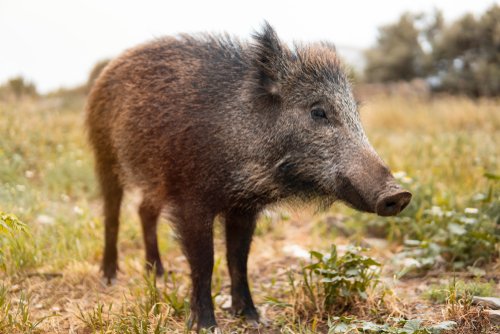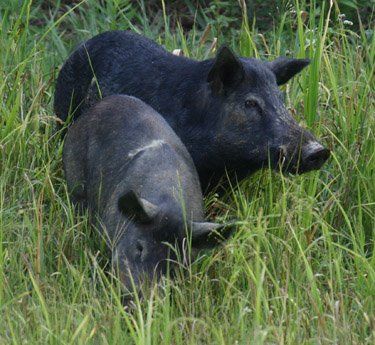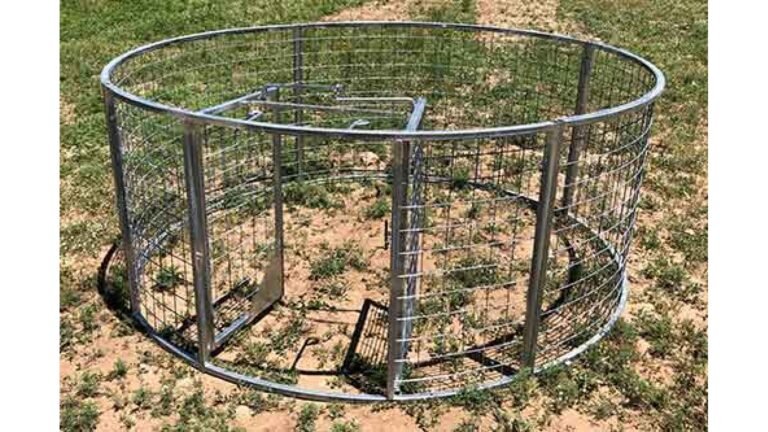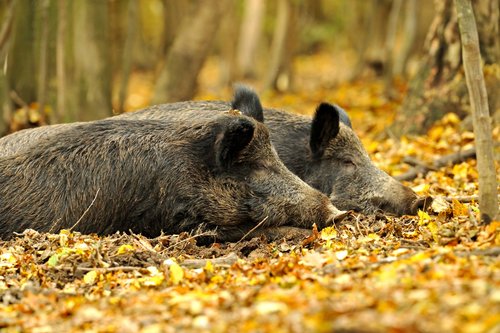Public vs. Private Lands for Hog Hunting – Pros and Cons
When it comes to hog hunting, one of the key decisions hunters must make is whether to pursue their passion on public or private lands. This blog will deeply dive into Public vs. Private Lands for hog hunting and reveal some secrets that only the hogs know.
Firstly, let’s delve into the topic of hunting regulations. Public lands are typically governed by state or federal wildlife agencies, which enforce specific regulations to ensure a sustainable and fair hunting experience for all. These regulations govern bag limits, hunting seasons, and weapon restrictions.
However, the rules may be more flexible on private lands as they are determined by individual landowners or organizations leasing their properties for hunting purposes. This flexibility can provide hunters with unique opportunities, such as extended hunting seasons or special exemptions within reason.
Another crucial aspect to consider is land access. Public lands offer vast expanses to all licensed hunters without requiring individual permissions or fees.
This accessibility can be advantageous for those seeking new hunting grounds or individuals who do not have access to private properties. On the other hand, private lands necessitate securing permission from landowners before embarking on a hunt.
While this adds an extra layer of effort and communication, it often leads to exclusive access and reduced competition from fellow hunters. Additionally, examining the pros and cons of each option is crucial in making an informed decision about where to hunt hogs successfully.
Regarding public land hog hunting, one significant advantage is the sheer expanse of available territory that these areas provide. Vast tracts of public lands often offer diverse habitats where hogs thrive, increasing your chances of encountering these elusive creatures during your hunt.
Furthermore, public lands usually receive some management efforts from wildlife agencies aimed at improving game populations and habitat conditions. Conversely, hog hunting on private lands offers its own set of benefits worth considering.
One notable advantage is the potential for more controlled hunting environments. As landowners have the liberty to manage their properties as they see fit, they can establish hog management plans that specifically cater to their land and wildlife needs.
This could involve implementing feeders and food plots or employing professional guides with intimate knowledge of the property and its hog population. Such personalized attention can significantly enhance your chances of a successful hunt.
When exploring your options for hog hunting, it’s vital to weigh the aspects of hunting regulations, land access, and the pros and cons of public versus private lands. Understanding how these factors align with your preferences and goals will help you make an informed decision.
Whether you opt for public lands with their expansive possibilities or private lands with tailored management strategies, both avenues offer unique experiences that cater to different hunting styles and interests. Ultimately, it’s about finding the perfect fit that maximizes your chances of a memorable and rewarding hog-hunting adventure.
Navigating the Legal Landscape: Hog Hunting Regulations on Public and Private Lands
When it comes to hog hunting, understanding the hunting regulations governing both public and private lands is crucial. These regulations vary from state to state and even between counties, so hunters need to familiarize themselves with the specific rules of their chosen hunting location.
On public lands, hog hunting regulations are typically managed by government agencies such as state wildlife departments or national park services. These agencies establish guidelines regarding hunting seasons, bag limits, weapon restrictions, and licensing requirements.
Hunters must obtain the necessary permits and licenses before entering public lands for hog hunting. Failure to do so can result in legal ramifications and hefty fines.
On the other hand, private lands are subject to their own set of regulations established by landowners or leaseholders. Accessing private lands for hog hunting often requires securing permission from the landowner or obtaining a lease agreement.
In addition to respecting any unique rules set by landowners, hunters must also adhere to broader state-level laws that may pertain to private land hunting. One notable difference is in access restrictions when comparing public and private land regulations.
Public lands are generally open for all licensed hunters during specified seasons while adhering to bag limits and weapon restrictions. Conversely, private lands often limit access only to individuals who have obtained permission from the landowner or paid a fee for leasing rights.
Understanding these differing regulatory frameworks is vital for compliance and making informed decisions about where and how you want to hunt hogs. While some hunters may prefer the flexibility offered by public lands’ open access policies, others may opt for the exclusivity and potential benefits of private land access.
By taking the time to research local jurisdictional laws and regulations governing both public and private hog hunting grounds in your area of interest, you can ensure that you stay within legal boundaries while enjoying your time in pursuit of wild hogs. Additionally, staying updated on any changes in hunting regulations is always advisable by regularly consulting official sources or contacting local wildlife management agencies for the most accurate and current information.
Land Access Essentials: Securing Permission for Hog Hunting
Securing Permission for Hog Hunting Land access is a crucial hunting aspect, especially concerning private lands.
Unlike public lands open to the general public for recreational activities such as hunting, private lands require obtaining explicit permission from the landowner before engaging in any hunting activities. This prerequisite ensures that hunters respect the landowner’s rights and follow specific guidelines set by them.
This section will explore the essential steps and considerations for securing permission to hunt hogs on private lands. First and foremost, establishing a rapport with the landowner is key to obtaining permission for hog hunting.
Approach the landowner respectfully and demonstrate your knowledge of local hunting regulations and practices. It is crucial to be well-informed about any specific rules or restrictions they may have in place regarding hog hunting on their property.
This demonstrates your commitment to responsible hunting practices and increases your chances of obtaining permission. When seeking permission, it is advisable to present yourself as a responsible hunter who understands not only the thrill of the sport but also respects nature and takes conservation seriously.
Highlight any previous experience you have in hog hunting or other types of game management that could establish you as a knowledgeable hunter who can contribute positively to their property’s ecosystem. Additionally, providing references from other landowners whose properties you have hunted successfully can greatly enhance your credibility and increase your chances of securing permission.
Landowners often value testimonials from fellow property owners who can vouch for your respectful behavior, adherence to regulations, and ethical approach toward wildlife management. Once you have obtained permission for hog hunting on private lands, it is essential to establish clear communication channels with the landowner or their designated representative.
Agree upon specific dates or seasons when you are allowed access to the property and discuss any additional requirements, such as signing liability waivers or notifying them before each visit. Maintaining open communication lines throughout your hunting endeavors on private lands will strengthen trust with the landowner and foster a positive, ongoing relationship.
Remember, securing permission for hog hunting on private lands requires diligence, respect, and understanding of the landowner’s expectations. Following these guidelines and demonstrating your commitment to responsible hunting practices will increase your chances of obtaining access to private lands and enjoying fruitful hunting experiences.
Pros and Cons of Public Land Hog Hunting
Hog hunting on public lands offers unique advantages and disadvantages that hunters must consider when deciding where to pursue their quarry.
On one hand, public lands provide ample opportunities for hog hunting, often encompassing vast territories with diverse habitats. These lands are typically managed by state or federal agencies, ensuring they are well-maintained and accessible.
In addition, many public lands have designated hunting areas specifically tailored for hog hunters, making locating and tracking hogs easier. However, despite these advantages, there are also drawbacks to hog hunting on public lands.
One of the key challenges is the increased competition from other hunters. Public lands often attract many hunters due to their accessibility and popularity.
This can lead to crowded hunting areas, reducing your chances of encountering hogs or finding suitable shooting opportunities. It is common to encounter other hunters nearby during hunts on popular public land locations.
Furthermore, hunting regulations on public lands can be more restrictive than on private properties. These regulations are implemented by governing bodies to manage wildlife populations and ensure sustainable hunting practices.
However, they may limit certain aspects of your hunt, such as weapon types or specific hog hunting seasons, to maintain balance within the ecosystem. Another factor that must be considered is land access itself.
While many public lands are open for hunting year-round or during specific seasons, some areas may require permits or reservations in advance due to high demand or limited availability. Proper research and planning ahead are essential when considering hog hunting on public lands.
Hog hunting on public land offers numerous benefits, such as expansive territories with diverse habitats and well-maintained access points tailored to hunters’ needs. However, it also comes with challenges like increased competition from other hunters and potential restrictions wildlife management agencies impose regarding weapons usage or specific seasons for hog hunting.
Additionally, land access can be limited, requiring careful planning and adherence to permits or reservations. Before embarking on a public land hog hunting adventure, weighing these pros and cons against your personal preferences and hunting objectives is crucial.
Advantages of Hog Hunting on Private Lands
Regarding hog hunting, private lands offer many advantages, making them an enticing choice for avid hunters.
From increased flexibility and exclusivity to better management practices and potential trophy opportunities, private lands provide a unique hunting experience that sets them apart from public alternatives. One significant advantage of hog hunting on private lands is the increased control over the hunting environment.
Unlike public lands, which may have numerous restrictions and regulations, private landowners can set rules and tailor the hunting experience. This can translate into more relaxed bag limits, longer hunting seasons, and specialized options such as night hunts or guided excursions.
With such flexibility, hunters can enjoy a more personalized and tailored experience that aligns with their preferences. Moreover, private landowners often implement proper habitat management practices to enhance hog populations.
By actively controlling habitat conditions through food plots, water sources, and supplemental feeding programs, they create an environment that attracts hogs to specific areas on their property. As a result, hunters on private lands are presented with improved opportunities for successful hunts as the hogs become habituated to these designated locations.
This level of control over land management greatly increases the chances of successful harvests. Additionally, privacy and exclusivity are inherent benefits of hog hunting on private lands.
Public lands often attract many hunters due to accessibility and limited alternative options. This influx of hunters can lead to increased competition and reduced chances of finding quality game animals.
On privately owned properties dedicated exclusively to hog hunting or those with restricted access agreements in place, you can enjoy a more peaceful ambiance without worrying about crowded areas or encountering other hunters interfering with your hunt. Private landowners sometimes engage in supplementary wildlife management practices to create trophy-sized hogs.
By selectively harvesting smaller hogs while allowing larger ones to mature over time through careful population control, landowners can produce larger, more impressive hogs on their properties. This focus on quality game animals appeals to dedicated hunters who relish the opportunity to bag a trophy-sized hog, adding an extra layer of excitement and accomplishment to their hunting experience.
The advantages of hog hunting on private lands are abundant. With greater flexibility in regulations, improved habitat management practices, enhanced privacy and exclusivity, and potential for trophy-sized hogs, private lands offer a superior hunting experience for those seeking a memorable adventure.
However, it is worth noting that land access and securing hunting permissions may involve additional steps and potentially incur fees. Nonetheless, for passionate hunters looking to elevate their hog hunting pursuits to new heights, private lands unquestionably provide a rewarding opportunity not easily matched by public alternatives.
Making the Decision: Which Land Type is Right for You?
Regarding hog hunting, one important consideration is determining whether public or private lands are more suitable for your hunting needs.
Each land type has unique advantages and disadvantages, and making an informed decision will greatly enhance your overall hunting experience. Factors such as land access, hunting regulations, and hunting permissions will play a significant role in this decision-making process.
Public lands offer hunters the opportunity to explore vast areas encompassing diverse terrains. National forests, wildlife management areas, and state parks are common examples of public lands available for hog hunting.
Due to their expansive nature, these regions often provide ample opportunities to engage in hog hunting. Public lands usually have roads and trails that make navigation relatively easier.
However, it’s important to note that public lands also attract more hunters due to their accessibility. This increased competition can sometimes hinder your chances of finding ideal hog hunting spots or decrease the overall quality of your experience.
Additionally, restrictions on public lands may be imposed, such as limited access during specific seasons or designated zones for hog hunting activities. On the other hand, private lands present different advantages when it comes to hog hunting.
Private properties often offer exclusive access to hunters who secure permission from landowners or lease agreements. This exclusivity allows you greater control over your hunting environment and reduces interference from other hunters.
Additionally, private landowners who allow hog hunting on their property may actively manage and control feral hog populations through various methods, such as baiting or trapping. This can greatly increase the likelihood of successful hunts compared to public lands where population control measures might be less comprehensive.
However, gaining access to private lands for hog hunting can sometimes prove challenging due to limited availability or strict permissions required by landowners. Building relationships with landowners through respectful communication and demonstrating responsible behavior can increase your chances of securing permission for hog hunting on private lands.
Ultimately, deciding whether to choose public or private lands for hog hunting depends on your preferences and priorities. If you value vast expanses and the thrill of exploring uncharted terrain, public lands might be more suitable for you.
However, private lands may be better if you desire exclusivity and a higher likelihood of successful hunts. Consider evaluating these factors carefully before embarking on your hog-hunting adventure.
Securing Hunting Permissions on Private Lands
Regarding hog hunting, securing the necessary permissions to hunt on private lands is crucial. Unlike public lands, where access is open to all hunters, private lands are owned by individuals or companies and require specific authorization.
Understanding the process of acquiring hunting permissions on private lands ensures a successful and legally compliant hunting experience. To begin, it is essential to establish connections with landowners or lease managers who control the private properties you wish to hunt on.
Networking within hunting communities, attending local events and seminars, and joining hunting clubs or associations can provide valuable opportunities to meet potential land-access partners. Building relationships based on trust and respect may enhance your chances of obtaining permission to hunt on these exclusive properties.
Once you have identified potential landowners or managers, it is important to approach them courteously and professionally. Drafting a well-written request letter that highlights your experience as a responsible hunter and emphasizes your commitment to abiding by all hunting regulations can make a positive impression.
Clearly state your intent for hog hunting while expressing appreciation for the opportunity to explore their property. In some cases, landowners may request a face-to-face meeting before granting permission.
This allows them to assess your character firsthand and ensure that you align with their values as stewards of their land. During such meetings, demonstrating knowledge of the area’s wildlife population dynamics, habitat conservation practices, and any previous experience in hog management can further strengthen your case.
It is important to recognize that not all requests will be granted immediately; some landowners may already have agreements with other hunters or have specific criteria they consider when selecting individuals for permission. Patience is key during this process, as building rapport takes time.
If initially denied permission, remain respectful and express gratitude for their consideration while leaving the door open for future opportunities. Investing time in networking efforts, crafting professional request letters, engaging in personal interactions with landowners or managers, and maintaining patience and persistence makes securing hunting permissions on private lands more attainable.
The process may require ongoing efforts, but the benefits of gaining access to exclusive hunting grounds will undoubtedly enhance your hog-hunting endeavors. Remember, building respectful relationships with landowners can lead to long-lasting partnerships that allow you to enjoy the privileges of private land hunting.
Public Land Hog Hunting Tips: Making the Most of Your Experience
When embarking on a hog hunting adventure on public lands, you must come prepared and equipped with the right knowledge and strategies to maximize your experience.
Here are some valuable tips to help you maximize your public land hog hunting expedition. First and foremost, familiarize yourself with the hunting regulations specific to the public land you plan to visit.
Each area might have rules regarding bag limits, season dates, weapons restrictions, and other important considerations. Understanding these regulations will ensure you stay within legal boundaries while enjoying your hunt.
Remember that adhering to hunting regulations is crucial for preserving the integrity of public lands and ensuring their sustainability for future generations. Researching the land thoroughly before your hunt is also advisable.
Study maps and topographical features to identify potential hog habitats such as swamps, dense vegetation, or areas near water sources. Understanding where hogs typically roam on public lands can narrow your search areas and increase your chances of success.
Additionally, consider scouting out the chosen area in advance if possible. A scouting trip will help you familiarize yourself with the terrain, locate signs of hog activity such as tracks or wallows, and identify potential ambush points or treestand locations for an advantageous position during your hunt.
Another helpful tip is to arrive early at your chosen location on a public land hunting day. Competition can be fierce when multiple hunters are targeting limited resources like hogs on popular grounds.
By arriving early in the morning before other hunters set up camp or begin their stalks, you can secure a prime spot and increase your opportunities for success. Remember that patience is key in hog hunting on public lands.
Hogs are intelligent creatures that quickly adapt to human presence; therefore, they may become more elusive during peak activity hours when pressure from hunters increases. Instead of solely focusing on daytime hunts, consider exploring nocturnal hunting options.
Hogs tend to be more active at night, making it an opportune time to ambush them using thermal or night vision equipment. Following these tips can enhance your public land hog hunting experience.
Remember to respect the land and fellow hunters by adhering to ethical practices. With proper planning and a strategic approach, you will have a successful and memorable hog-hunting adventure on public lands.
Etiquette and Ethics: Respecting the Rules on Public and Private Lands
When engaging in hog hunting, upholding a code of etiquette and ethics that ensures the safety and enjoyment of all involved and helps maintain a positive relationship between hunters, landowners, and the general public is essential.
Whether you are hunting on public or private lands, adhering to a set of rules demonstrates your respect for the environment, fellow hunters, and property owners. One fundamental aspect of hog hunting etiquette is familiarizing yourself with hunting regulations for your chosen land.
Both public and private lands have their own set of rules governing hunting activities. These regulations typically include guidelines related to bag limits, shooting hours, licensing requirements, firearm restrictions, and seasonal restrictions.
Familiarize yourself with these rules before venturing out to ensure compliance. Ignorance of the law is not an excuse for adhering to hunting regulations.
Respecting private property boundaries is another crucial element of ethical hog hunting. When pursuing hogs on private lands, always obtain proper hunting permissions from landowners or leaseholders before entering their properties.
Establishing open lines of communication with landowners is essential so that they know you are responsible and respectful hunters who will treat their property with care. This mutual trust can lead to long-lasting relationships between hunters and landowners.
While hog hunting on public lands may not require explicit permission from individual landowners, respecting boundaries still plays a vital role in maintaining harmony among different user groups in these areas. Be aware of any designated zones or restricted areas where hunting may be prohibited or limited due to safety concerns or ongoing conservation efforts.
Additionally, be considerate towards other users of public lands, such as hikers or birdwatchers, by keeping noise levels low and avoiding conflict whenever possible. Furthermore, ethical decision-making during hunts demonstrates your commitment to responsible hog management practices.
Avoid taking shots that exceed your proficiency level or pose a risk to the safety of others nearby. Aim for clean, ethical kills to minimize suffering and ensure swift, humane dispatch.
Additionally, be mindful of your environmental impact by properly disposing of waste and utilizing sustainable hunting practices. Etiquette and ethics are paramount when hog hunting on public and private lands.
By respecting hunting regulations, obtaining appropriate permissions, and conducting yourself responsibly during hunts, you contribute to a safe and enjoyable experience for everyone involved and promote positive relationships with landowners and the wider community. Remember that being a responsible hunter means consistently upholding these values on and off the field.
Success Stories: Memorable Hunts on Public and Private Lands
The Thrill of the Chase: Unforgettable Experiences on Public Lands
Hunting enthusiasts who have ventured onto public lands for hog hunting can attest to the exhilaration of the chase. One particularly memorable hunt occurred in the vast wilderness of a national forest.
As the sun rose, a group of determined hunters set off on foot, guided by their knowledge of hog behavior and tracking skills. Hours passed in anticipation until they stumbled upon a sounder rooting in a dense thicket.
With stealthy precision, shots were fired, and multiple hogs were successfully taken down. The camaraderie that followed as they shared stories around a campfire showcased the unique bond formed through such adventures on public lands.
A Private Paradise: Unparalleled Experiences on Private Lands
For those fortunate enough to secure hunting permissions on private lands, the experiences can be equally remarkable but with added perks.
One unforgettable hunt unfolded at a sprawling ranch amidst rolling hills and fields. The hunt began early in the morning from strategically placed blinds overlooking well-maintained feeding areas.
As daylight broke, hogs emerged, unaware of their impending fate. With carefully aimed shots, successful harvests were made while enjoying exclusive access to pristine landscapes and luxurious amenities that private lands offer.
Challenges Turned Triumphs: Overcoming Obstacles on Both Land Types
No matter whether hunting occurs on public or private lands, it is not without its challenges that often turn into triumphant moments worth remembering forever.
On public lands where competition can be fierce due to higher hunter densities, one hunter’s persistence paid off when discovering an overlooked hotspot deep within an expansive wildlife management area (WMA). This hidden gem yielded not only numerous hog sightings but also provided ample opportunity for successful harvests.
Similarly, even with access granted to private lands, hunters must adapt to changing circumstances. Heavy rainfall had made tracking hogs nearly impossible during one memorable hunt on a private ranch.
Undeterred, the hunters relied on their knowledge of hog behavior and scoured the property until they stumbled upon a well-used game trail. Patiently waiting for hogs to pass by, they seized the opportunity and emerged victorious against the elements.
The Unpredictable Nature of Hunting: Stories That Remind Us Why We Do It
Regardless of land type, what truly makes hunts memorable is often their unpredictability.
On public lands, seasoned hunters have shared extraordinary tales of encountering massive trophy boars unexpectedly in remote areas where sightings are rare. These awe-inspiring experiences serve as a reminder that nature’s mysteries can be unlocked with dedication and perseverance.
Similarly, private lands have their surprises in store. One hunter recounted an anecdote where an unplanned encounter with a group of hogs led to an exhilarating chase through densely wooded areas until he finally took down an elusive trophy hog that tested his skills to the limit.
Whether on public or private lands, unforgettable hunting experiences are created through preparation, dedication, and unwavering passion for the sport. Each land type offers unique challenges and rewards that contribute to creating cherished memories shared among fellow hunters.

Conclusion: Finding Your Perfect Hog Hunting Destination
Finding your perfect hog hunting destination requires careful consideration of various factors such as hunting regulations, hunting permissions, and land access. You can make an informed decision based on your preferences and priorities by evaluating the pros and cons of public and private lands. When it comes to public land hog hunting, the thrill lies in the vastness of these areas.
In addition to the potential for larger hog populations due to less hunting pressure, public lands often offer diverse terrains that can provide unique hunting experiences. Furthermore, public lands typically have established regulations and management practices to ensure sustainable hog populations and preserve wildlife habitats.
On the other hand, private land hog hunting also offers distinct advantages. By securing permission to hunt on private properties, hunters gain exclusive access to specific areas that may have been carefully managed for optimal game population control.
This can lead to more controlled and personalized hunting experiences. Additionally, private landowners may have implemented supplementary feeding programs or other attractants that increase the chances of successful hunts.
Ultimately, your perfect hog hunting destination will depend on your preferences for adventure level, solitude versus camaraderie with fellow hunters, and the availability of suitable properties in your desired location. It is essential to thoroughly research public and private options in your area before deciding.
Whether you explore the vastness of public lands or seek exclusive opportunities on private properties, there is an undeniable excitement that comes with hog hunting. The chance to test your skills against these formidable creatures while immersing yourself in nature is a truly exhilarating experience.
With careful planning and consideration of all aspects discussed throughout this article – from understanding local regulations and securing necessary permissions to evaluating access opportunities – you can embark on a memorable hog hunting journey tailored precisely to your preferences. So gear up, sharpen those aiming skills, and prepare for an unforgettable adventure pursuing wild hogs!







